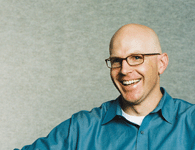Exclusive Interview: Andy Cooley, Senior Vice President, Marketing Sungard SCT Higher Education
Dr. Saba:
You have had a successful career in both business and education; how did you become interested in the role of technology in higher education?
Mr. Cooley :
For some time, I worked closely with education foundations and organizations as a communications consultant. Through this experience, I became aware of the many strengths of our educational system. I also became aware of the unique challenges facing higher education, and I began exploring how technology could extend and expand the reach of educators and educational organizations. Soon after, I had the serendipitous opportunity to take a position with Campus Pipeline, a company that was applying emerging technologies to extend education to greater populations and to reduce some of the administrative barriers associated with higher learning. Later, SunGard SCT acquired Campus Pipeline and the company carries on this mission of applying technology to bring together systems, individuals, and communities for the purposes of learning, teaching, and administration.
Dr. Saba:
In recent years, there has been an explosion of digital technologies with many applications to educational institutions. What kinds of technologies does SunGard SCT provide to educational institutions?
Mr. Cooley :
Our role is analogous to the builders who constructed today’s great physical campuses to bring people together to exchange ideas and to create knowledge. Similarly, SunGard SCT is helping higher education build a digital campus that eliminates physical boundaries, and extends and enhances the interchange between professors and students, and also among students, to take place anywhere, anytime. We do this by providing technologies to create what we call a Unified Digital Campus (UDC). The technologies within this UDC include academic solutions; portal, collaboration, and content management solutions; information access and business intelligence solutions; and integration solutions. More than 1,300 institutions worldwide use SunGard SCT solutions.
Dr. Saba:
: What are some of the most difficult issues to overcome, and where have you been most helpful in resolving these issues?
Mr. Cooley :
Colleges and universities have very heterogeneous technology environments. They have homegrown systems or a mix of vendor-supplied solutions, and frequently both. Our biggest challenge has been helping institutions strike a balance between adhering to industry standards, yet also accommodating the many diverse technology applications within their environments.
SunGard SCT has been successful in achieving this largely because of our sizeable and diverse customer base. Our client institutions give us very detailed information about their objectives, their processes, and their challenges. From this, we can identify core commonalities and build on them. By doing so, we can provide solutions at a lower cost of ownership. Our active and vocal client base also helps us to continually understand their changing needs and challenges. We realize that higher education is a unique environment and we are committed to providing solutions that address our clients’ subtleties and challenges. Higher education is our sole focus.
Dr. Saba:
Is technology having an effect on education in general? You would think that with technological applications, the cost of higher education, for example, should decrease; however, we are seeing tuitions increased every year. Where is the disconnection?
Mr. Cooley :
Certainly, technology has had a great impact on higher education. Its greatest influence is enabling ready access to information, experts, resources, data, and research; and it is dramatically expanding educational opportunities.
Technology applications do result in administrative cost savings. For example, it allows institutions to be more targeted in their recruiting efforts. Also, self-service applications, like registering and paying for courses online, save costs in paper, materials, and staff time. Technology also enables institution staff to work more efficiently.
However, technology is not inherently a cost reducer. Rather, it is a tool to reduce administrative barriers, expand the interaction between learners and faculty, and enhance the educational experience. The payback is the increased quality of interaction and education, not reduced costs.
Dr. Saba:
How do you see the future of technology in higher education?
Mr. Cooley :
I believe that technology will continue to expand access to knowledge, and continue to reduce barriers to learning. But it will never replace the valuable and necessary interaction that must take place at some level between a faculty member and a learner. It will never automate the actual education process.
Dr. Saba:
Thank you for sharing your thoughts with our readers.

Andy Cooley
Senior Vice President of Marketing, SunGard SCT Inc.
Mr. Cooley joined SunGard SCT in 2002 with the acquisition of Campus Pipeline, where he served as senior vice president of corporate marketing and product management. While there he was in charge of defining new products and services as well as creating the marketing that helped the company become the higher education portal leader. Prior to Campus Pipeline, Mr. Cooley was senior research executive at Wirthlin Worldwide, a strategic research and communications consulting firm. At Wirthlin, Mr. Cooley worked with several Fortune 500 firms, industry groups, and nonprofit organizations including the American Plastics Council, Houston Industries, Beneficial Life, Visa, and the Quest Futures Group, which includes Coke, IBM, Disney, GM, and other industry leaders.
Mr. Cooley has a bachelor’s degree in English from the University of Utah and a master’s degree in public policy from Harvard University. Mr. Cooley is involved in volunteer efforts to enhance the undergraduate experience in higher education and currently serves on alumni boards for both institutions.
For more information on Sungard SCT Inc. Contact:
Nick D’Addezio
ndaddezi@sungardsct.com
800.223.7036 phone
www.sungardsct.com







